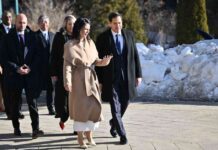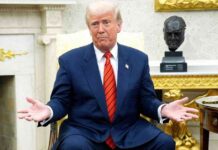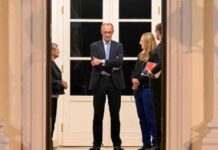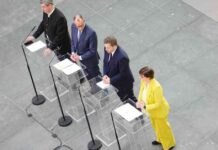Nationwide Outrage Over Politician’s Controversial Statements
The recent remarks made by Herbert Kickl during his election campaign tour in Hallein have stirred up a storm of controversy and outrage across the nation. Kickl’s inflammatory comments, directed towards the Salzburg Festival, have sparked condemnation from various political figures and the public alike.
During his speech, Kickl expressed his disdain for the Salzburg Festival, referring to it as a gathering of „hypocrites“ and „inbreds.“ These derogatory remarks not only insulted the prestigious cultural event but also raised concerns about the level of respect and decorum in political discourse. Landeshauptmann Wilfried Haslauer of the ÖVP was quick to denounce Kickl’s comments, emphasizing the importance of maintaining a minimum level of respect, especially during election campaigns.
Political Fallout and Responses
The fallout from Kickl’s statements extended beyond just political circles. Marlene Svazek, the deputy of Haslauer, attempted to downplay Kickl’s remarks by suggesting that he may have been referring to the federal government’s involvement in the festival, rather than the festival itself. However, this attempt to rationalize Kickl’s comments did little to quell the public’s outrage.
Festspieldirektor Lukas Crepaz condemned Kickl’s remarks as self-disqualifying, highlighting the inappropriate nature of his comments towards a cultural institution of such significance. Even Salzburg’s KPÖ-Vize-Stadtchef Kay-Michael Dankl weighed in on the controversy, criticizing Kickl for his perceived hypocrisy in claiming to represent the interests of the common man while benefiting from substantial public funds.
National Response and Criticism
The repercussions of Kickl’s statements reverberated beyond the borders of Salzburg, drawing criticism from various quarters. SPÖ leader Andreas Babler took aim at Kickl’s idolization of political figures from the 1970s, particularly former Chancellor Bruno Kreisky. Babler accused the FPÖ of betraying the values and achievements associated with figures like Kreisky, citing their actions in government as evidence of their destructive policies.
The broader implications of Kickl’s comments have sparked a national conversation about the role of politicians in upholding civility and respect in public discourse. Many have expressed dismay at the erosion of political norms and the rise of inflammatory rhetoric in today’s political landscape. The need for politicians to lead by example and promote constructive dialogue has never been more apparent.
As the nation grapples with the fallout from Kickl’s controversial statements, it serves as a stark reminder of the importance of responsible leadership and the impact of words on public perception. The public’s demand for accountability and integrity in political discourse remains steadfast, underscoring the need for elected officials to prioritize the common good over personal agendas. In a time of increasing polarization and divisiveness, the call for unity and mutual respect has never been more urgent.















